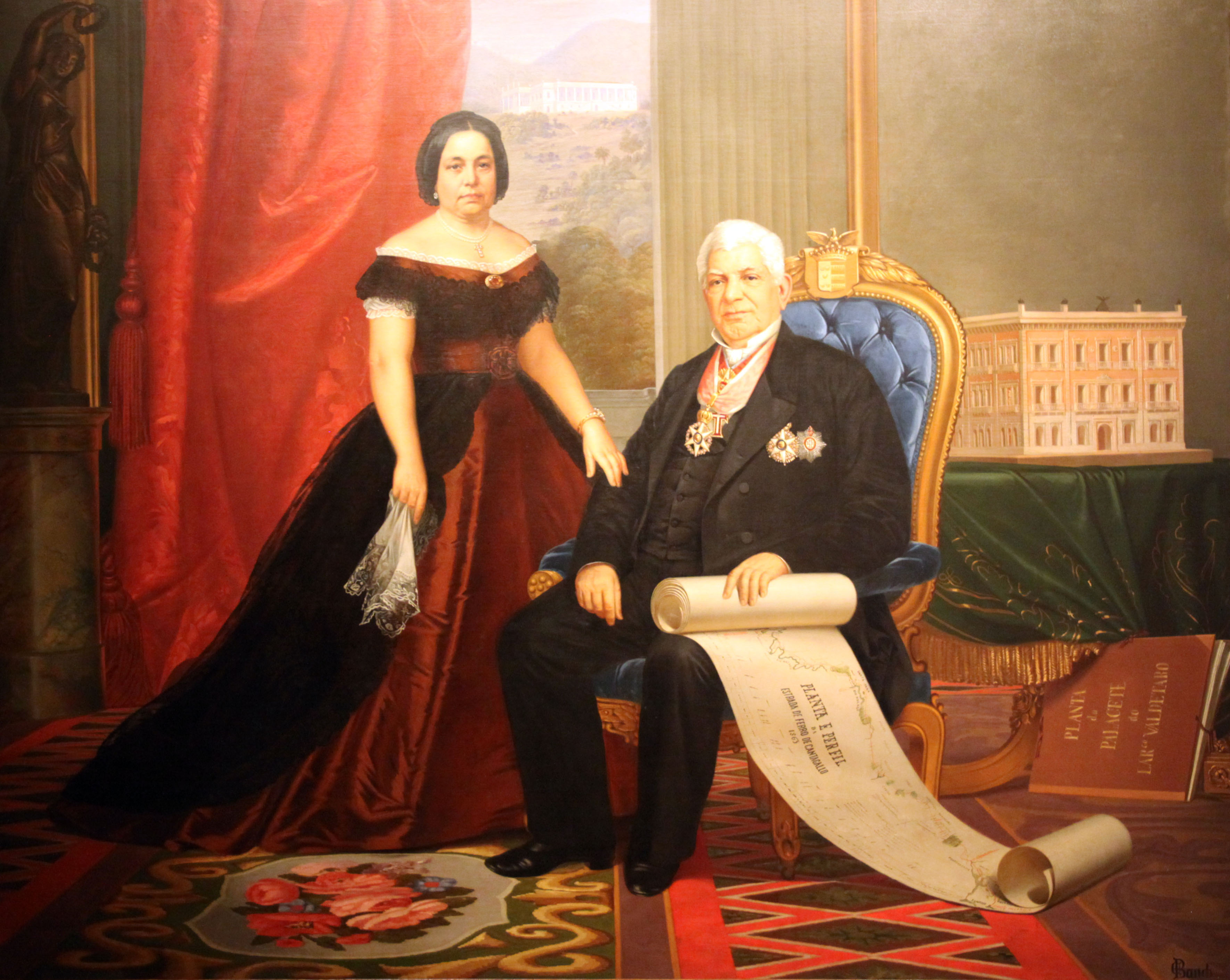|
String Quartet No. 5 (Villa-Lobos)
String Quartet No. 5 ("Quarteto popular no. 1") is the fifth of seventeen works in the genre by the Brazilian composer Heitor Villa-Lobos, written in 1931. A performance lasts approximately 17 minutes. History Villa-Lobos composed his Fifth Quartet in São Paulo in 1931. The manuscript bears a dedication to the federally appointed Governor (''Interventor'') of the State of São Paulo from 26 November 1930 to 25 July 1931, though his name does not appear in the published score. The circumstances of the quartet's first performance are not recorded. The Quarteto popular is the first of a pair of quartets written in the 1930s, and marks a return by Villa-Lobos to the string quartet after a hiatus of fourteen years. Its composition also coincides with the composer's return to Brazil after a lengthy period spent mainly in Paris, and its marked turn to nationalism is associated with the political programme of the Getulio Vargas regime. The subtitle, "Quarteto popular", likely refers to ... [...More Info...] [...Related Items...] OR: [Wikipedia] [Google] [Baidu] |
Heitor Vila-Lobos (c
Heitor is a given name (''Hector'' in the Portuguese language) which may refer to: * Heitor (footballer, born 1898) (1898–1972), Ettore Marcelino Dominguez, Brazilian football striker * Heitor (Portuguese footballer) (born 1978), Portuguese football player and coach * Heitor (footballer, born April 2000), Heitor Marinho dos Santos, Brazilian football centre-back * Heitor (footballer, born November 2000), Heitor Rodrigues da Fonseca, Brazilian football right-back * Heitor Canalli (1907–1990), Brazilian football player * Heitor Dhalia (born 1970), Brazilian film director and screenwriter * Heitor Pereira (born 1960), Brazilian musician ** ''Heitor TP'', a 1994 album by Heitor Pereira * Heitor da Silva Costa (1873–1947), Brazilian civil engineer and designer of the ''Christ the Redeemer'' monument * Heitor Villa-Lobos (1887–1959), Brazilian composer See also *Hector In Greek mythology, Hector (; grc, Ἕκτωρ, Hektōr, label=none, ) is a character in Homer's Iliad ... [...More Info...] [...Related Items...] OR: [Wikipedia] [Google] [Baidu] |
Cuarteto Latinoamericano
Cuarteto Latinoamericano is one of the world's most renowned string quartets and, for forty years, the leading proponent of Latin American music for the genre. Founded in Mexico in 1982, the Cuarteto has toured extensively throughout Europe, North and South America, Israel, China, Japan, and New Zealand. They have premiered over a hundred works written for them, and they continue to introduce new and neglected composers to the genre. Winners of two Latin Grammy Award for Best Classical Album, they have also been awarded the prestigious Diapason d'Or, have been recognized with the Mexican Music Critics Association Award, and have received three "Most Adventurous Programming" Awards from Chamber Music America/ASCAP. Cuarteto Latinoamericano's members are three Bitrán brothers: violinists Saul and Aron and cellist Alvaro, with violist Javier Montiel. They have recorded more than 100 CDs, including nearly the entire Latin American repertoire for the string quartet. Volume 6 of their ... [...More Info...] [...Related Items...] OR: [Wikipedia] [Google] [Baidu] |
String Quartets By Heitor Villa-Lobos
String or strings may refer to: *String (structure), a long flexible structure made from threads twisted together, which is used to tie, bind, or hang other objects Arts, entertainment, and media Films * ''Strings'' (1991 film), a Canadian animated short * ''Strings'' (2004 film), a film directed by Anders Rønnow Klarlund * ''Strings'' (2011 film), an American dramatic thriller film * ''Strings'' (2012 film), a British film by Rob Savage * ''Bravetown'' (2015 film), an American drama film originally titled ''Strings'' * ''The String'' (2009), a French film Music Instruments * String (music), the flexible element that produces vibrations and sound in string instruments * String instrument, a musical instrument that produces sound through vibrating strings ** List of string instruments * String piano, a pianistic extended technique in which sound is produced by direct manipulation of the strings, rather than striking the piano's keys Types of groups * String band, musical ens ... [...More Info...] [...Related Items...] OR: [Wikipedia] [Google] [Baidu] |
Gerard Béhague
Gerard Henri Béhague (November 2, 1937 – June 13, 2005) was an eminent Franco-American ethnomusicologist and professor of Latin American music. His specialty was the music of Brazil and the Andean countries and the influence of West Africa on the music of the Caribbean and South America, especially candomblé music. His lifelong work earned him recognition as the leading scholar of Latin American ethnomusicology. Biography Béhague was born in Montpellier, France and raised in Rio de Janeiro, Brazil. There he studied piano, music theory and composition at the National School of Music of the University of Brazil and the Brazilian Conservatory of Music. He earned a diploma from the latter (1959), a master's degree in musicology from the University of Paris (Sorbonne; 1962), and a Ph.D. in musicology from Tulane University (1966), where he studied under the noted music historian Gilbert Chase. In 1962, Béhague married Cecilia Pareja, a daughter of Ecuadorian writer and di ... [...More Info...] [...Related Items...] OR: [Wikipedia] [Google] [Baidu] |
Eero Tarasti
Eero Aarne Pekka Tarasti (born 27 September 1948 in Helsinki), is a Finnish musicologist and semiologist, currently serving as Professor Emeritus of Musicology at the University of Helsinki. He received his Ph.D. degree at the University of Helsinki in 1978, writing his dissertation ''Myth and Music'' on Richard Wagner, Jean Sibelius, and Igor Stravinsky. Then, Tarasti served at the University of Jyväskylä between 1979–1984, where he was appointed Professor of Arts Education in 1979 and Professor of Musicology in 1983. In 1984 he took the position of Professor of Musicology in Helsinki, succeeding Erik Tawaststjerna. Tarasti has held posts as Director or President in several semiotic and musical societies and since the 1970s has written and edited numerous books encompassing a semiotic approach to music. He has been the President of the International Association for Semiotic Studies (2004–2014), and the Director of the International Semiotics Institute. Eero Tarasti ... [...More Info...] [...Related Items...] OR: [Wikipedia] [Google] [Baidu] |
Theatro Municipal (Rio De Janeiro)
The Theatro Municipal ("Municipal Theater") is an opera house in the Centro district of Rio de Janeiro, Brazil. Built in the early twentieth century, it is considered to be one of the most beautiful and important theaters in the country. The building is designed in an eclectic style, inspired by the Paris Opéra of Charles Garnier. The outside walls are inscribed with the names of classic European and Brazilian artists. It is located near the National Library and the National Fine Arts Museum, overlooking the spacious Cinelândia square. History In the second half of nineteenth century, theatrical activity was very intense in Rio de Janeiro, then capital of the country. Still, its two theaters, the Lyric and St. Peter, were criticized for their facilities, either by the public or by the companies that worked in them. After the Proclamation of the Republic (1889), in 1894 playwright Artur Azevedo launched a campaign for the building of a new theater to host a local company ... [...More Info...] [...Related Items...] OR: [Wikipedia] [Google] [Baidu] |
Catete Palace
The Catete Palace ( pt, Palácio do Catete, ) is an urban mansion in Rio de Janeiro's Flamengo neighborhood. The property stretches from ''Rua do Catete'' (Catete Street) to ''Praia do Flamengo'' ( Flamengo Beach). Construction began in 1858 and ended in 1867. From 1897 to 1960, it was Brazil's presidential palace and the site of Getúlio Vargas' suicide. It now houses the ''Museu da República'' (Republic Museum) and a theatre. The Catete underground rail station is adjacent. History The building was built as the residence of family of the Portuguese-born Brazilian coffee producer António Clemente Pinto, Baron of Nova Friburgo, in the then capital of the Empire of Brazil. It was called the Palace of Largo Valdetaro and Palace of Nova Friburgo. With the design of German architect Carl Friedrich Gustav Waehneldt, dated 1858, the work began with the demolition of the old house. The construction officially ended in 1866, but the finishing works still continued for over a decade. ... [...More Info...] [...Related Items...] OR: [Wikipedia] [Google] [Baidu] |
Turibio Santos
Turibio Soares Santos (born March 7, 1943) is a Brazilian classical guitarist, musicologist, and composer, who established himself as a performer with a wide repertoire of pieces by Heitor Villa-Lobos, Ernesto Nazareth, Francisco Mignone, and by accompanying musicians like Clara Sverner, Paulo Moura and Olivia Byington on many CDs. Life and career Turibio Santos was born in São Luís, Maranhão, and at the age of 10 was attracted to the classical guitar. His first teacher was Antonio Rebello , and later he studied with Oscar Càceres . He also studied composition with Edino Krieger . In 1962, he gave his first recital in Rio de Janeiro, followed by a series of concerts all over Brazil. In the following year, the Villa-Lobos Museum invited him to play the Brazilian composer's ''Twelve Etudes'' for guitar and the ''Mystic Sextet'', given its first public hearing. 1964 marked the formation of a duo with Oscar Càceres and several tours of South America. Turibio Santos decided to ... [...More Info...] [...Related Items...] OR: [Wikipedia] [Google] [Baidu] |
Danubius Quartet
The Danubius Quartet was formed in Hungary in 1983. Its personnel comprise the violinists Judit Tóth (formerly Mária Szabó) and Adél Miklós, violist Cecilia Bodolai (formerly Agnes Apró) and cellist Ilona Wibli, under the artistic direction of the violinist Vilmos Tátrai. The quartet won a number of awards in the earlier years of its foundation, and has recorded, among other works, the String Quartet No. 1 of Reményi for Hungaroton, the complete String Quartets of Villa-Lobos for Marco Polo and for Naxos the Mozart and Brahms Clarinet Quintets, the Boccherini Ridolfo Luigi Boccherini (, also , ; 19 February 1743 – 28 May 1805) was an Italian composer and cellist of the Classical era whose music retained a courtly and ''galante'' style even while he matured somewhat apart from the major European ... Guitar Quintets and Spohr's Op. 33 String Quintets. References Hungarian string quartets {{Classical-ensemble-stub ... [...More Info...] [...Related Items...] OR: [Wikipedia] [Google] [Baidu] |
Heitor Villa-Lobos
Heitor Villa-Lobos (March 5, 1887November 17, 1959) was a Brazilian composer, conductor, cellist, and classical guitarist described as "the single most significant creative figure in 20th-century Brazilian art music". Villa-Lobos has become the best-known South American composer of all time. A prolific composer, he wrote numerous orchestral, chamber, instrumental and vocal works, totaling over 2000 works by his death in 1959. His music was influenced by both Brazilian folk music and stylistic elements from the European classical tradition, as exemplified by his ''Bachianas Brasileiras'' (Brazilian Bachian-pieces) and his Chôros. His Etudes for classical guitar (1929) were dedicated to Andrés Segovia, while his ''5 Preludes'' (1940) were dedicated to his spouse Arminda Neves d'Almeida, a.k.a. "Mindinha". Both are important works in the classical guitar repertory. Biography Youth and exploration Villa-Lobos was born in Rio de Janeiro. His father, Raúl, was a civil servant, an ... [...More Info...] [...Related Items...] OR: [Wikipedia] [Google] [Baidu] |
Bernardo Bessler
Bernardo Bessler (born 24 May 1954) is a Brazilian violinist, conductor, teacher, and producer. Bessler was born in Rio de Janeiro, Brazil. He is among the leading musicians of his country. His recordings have won for five consecutive years the Sharp Award for best classical album, highlight the New York Times among "the best of the year awards" and critics awards from the French magazines ''Répertoire'', ''Le Monde'' and'' Gramophone'', among others. Born in Rio de Janeiro, he began his violin studies at age five with Paulina D'Ambrosio. Later he studied with Yair Kless in Israel ( Rubin Academy in Jerusalem) and with Andre Gertler in Belgium. He plays a violin made in 1735 by Domenico Montagnana. As a producer has created dozens of series of concerts and shows with an educational basis, directed and produced music festivals across the country, and created socially relevant projects for poor communities. He has been performing since 1985 as first violin of the Bessler (later ... [...More Info...] [...Related Items...] OR: [Wikipedia] [Google] [Baidu] |
part.jpg)



